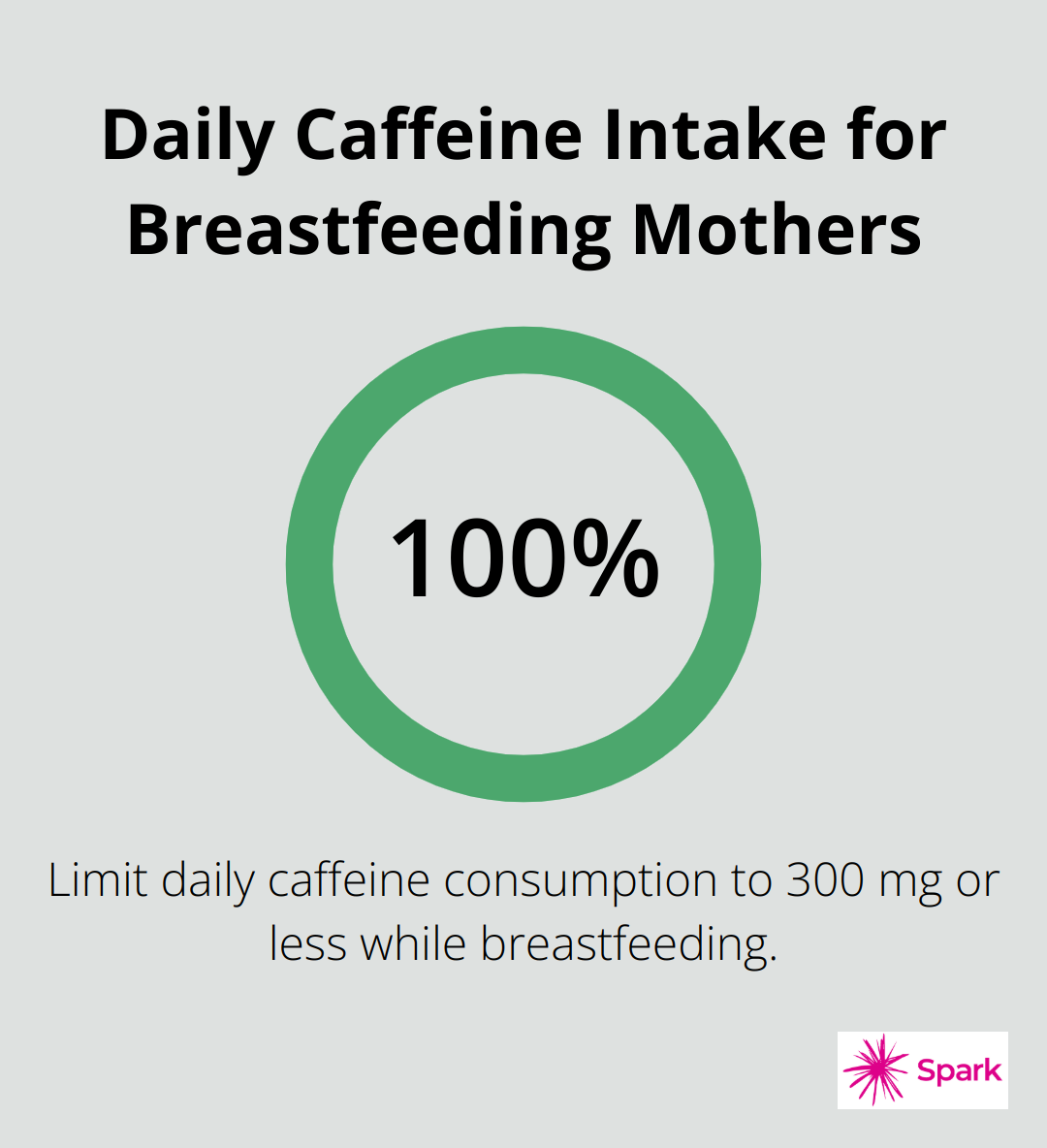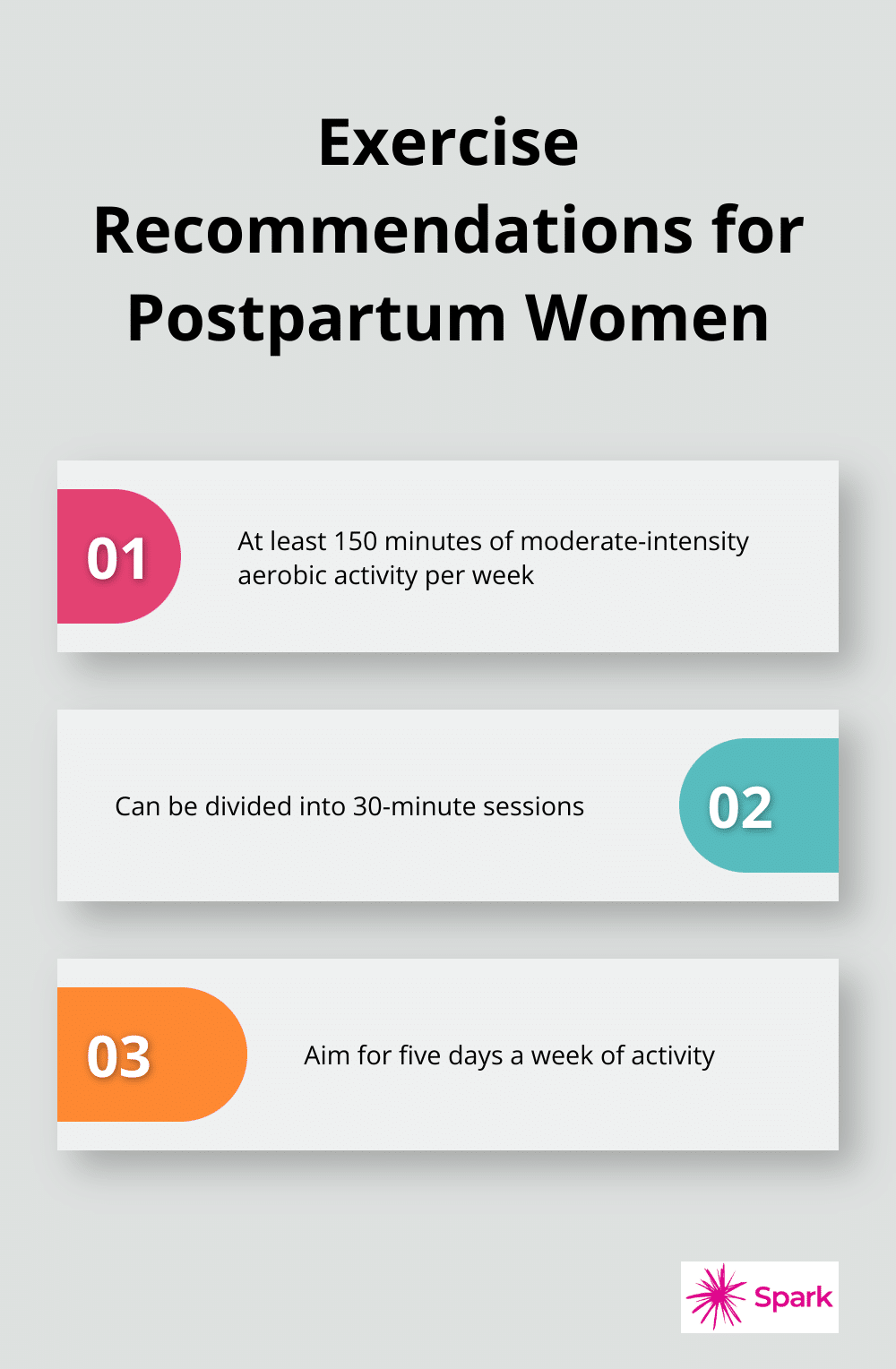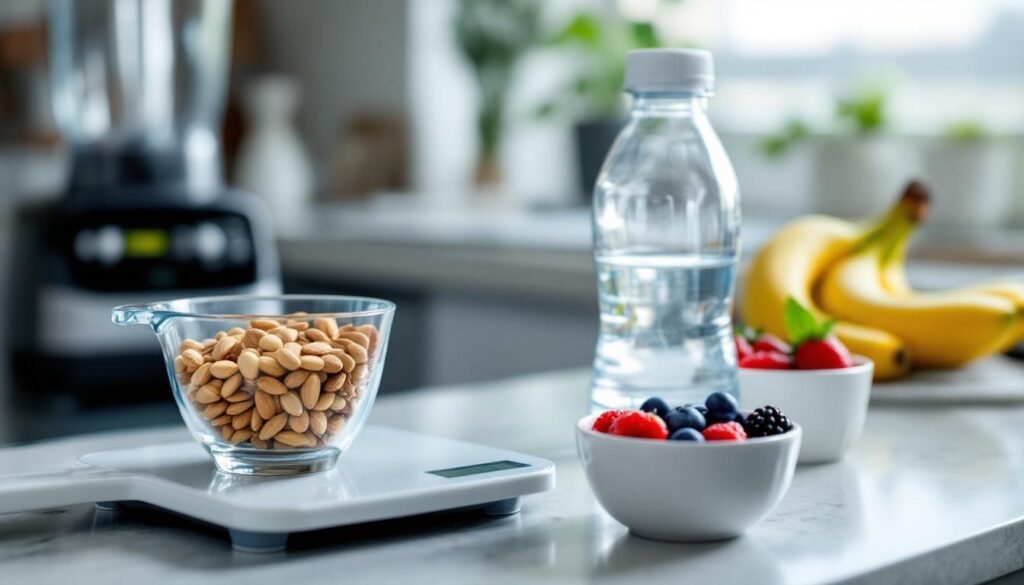At Spark Healthcare, we understand the challenges new mothers face when it comes to post-pregnancy weight reduction. Many women feel pressure to quickly shed the pounds gained during pregnancy, but it’s crucial to approach this process safely and effectively.
In this blog post, we’ll explore practical strategies for postpartum weight loss, focusing on nutrition, exercise, and overall well-being. Our goal is to help you achieve your health goals while prioritizing your recovery and the needs of your new baby.
Gradual Weight Loss After Pregnancy
Set Realistic Goals
Losing weight after pregnancy requires time and patience. Decreasing your intake by about 500 calories per day is generally safe and will help you lose about 1 pound (0.5 kg) per week. Your body took nine months to gain the weight, so allow yourself at least that long to lose it.
Start with small, achievable targets. Try to lose 5% of your current weight in the first three months. For instance, if you weigh 180 pounds, aim for 9 pounds in three months (a very doable target). As you hit these milestones, you’ll feel motivated to continue your journey.
Focus on Healthy Habits
Instead of obsessing over the scale, concentrate on developing healthy habits. Eat a balanced diet rich in fruits, vegetables, lean proteins, and whole grains. For breastfeeding mothers, the recommended calorie intake varies based on activity level:
- Sedentary: 1,800 to 2,000 calories per day
- Moderately active: 2,000 to 2,200 calories per day
- Active: 2,200 to 2,400 calories per day

Add physical activity to your daily routine. The CDC recommends at least 150 minutes of moderate-intensity aerobic activity a week for postpartum women. This could involve a 30-minute walk with your baby five days a week.
Practice Self-Compassion
The postpartum period presents challenges, and it’s important to be kind to yourself. Avoid comparing your progress to others or to unrealistic standards set by social media. Every woman’s body responds differently to pregnancy and childbirth.
On tough days, don’t criticize yourself. Acknowledge your feelings and refocus on your goals. Celebrate small victories (like choosing a healthy snack or completing a workout), rather than solely focusing on weight loss.
Sustainable Weight Loss Strategies
Adopt sustainable strategies for long-term success. Crash diets or extreme measures often lead to quick weight regain. Instead, make small, consistent changes to your lifestyle. This might include swapping sugary drinks for water, choosing whole grains over refined carbohydrates, or incorporating more protein-rich foods into your meals.
Consider meal planning to ensure you’re getting balanced nutrition throughout the week. Prepare healthy snacks in advance to avoid reaching for less nutritious options when hunger strikes. These small changes can add up to significant results over time.
As we move forward, let’s explore specific nutrition strategies that can support your postpartum weight loss journey while ensuring you and your baby receive the nutrients you need.
Fueling Your Postpartum Body
Nutrient-Rich Foods for Energy and Recovery
Your body needs extra nutrients to recover from childbirth and produce breast milk. Focus on foods high in nutrients like protein, calcium, and iron. Lean meats, fish, eggs, and legumes provide excellent protein sources. For calcium, incorporate dairy products or fortified plant-based alternatives. Iron-rich foods include spinach, lentils, and lean red meat.
Omega-3 fatty acids support your baby’s brain development and your overall health. Include fatty fish like salmon in your diet twice a week. If you follow a vegetarian diet, consider flaxseeds or chia seeds as alternatives.
Complex carbohydrates play a vital role in your nutrition. Whole grains, fruits, and vegetables provide sustained energy and essential fiber. They’ll keep you feeling full longer, which can help with weight management.
Smart Snacking for Breastfeeding Moms
Breastfeeding burns extra calories, so you’ll likely feel hungrier than usual. Eat at least 1,800 calories a day to support your milk production while losing weight. Keep healthy snacks on hand to avoid less nutritious options. Some ideas include:
- Greek yogurt with berries
- Apple slices with almond butter
- Hummus with carrot sticks
- Hard-boiled eggs
- Handful of unsalted nuts
These snacks provide a good balance of protein, healthy fats, and complex carbohydrates to keep your energy levels stable.
Hydration: Your Secret Weapon
Proper hydration is essential for milk production and overall health. Try to drink at least 8-10 glasses of water daily. Keep a water bottle with you at all times and sip throughout the day. If you don’t enjoy plain water, try infusing it with cucumber, lemon, or berries for added flavor.
Limit caffeine intake, as it can affect your baby through breast milk. It has been suggested to limit daily consumption to 300 mg/day or less while breastfeeding. Babies that are exposed to caffeine via the milk should be watched for signs of irritability or sleep disturbances.

Meal Planning for Success
Planning your meals in advance can help you stick to your nutrition goals and avoid unhealthy choices when you’re tired or pressed for time. Here are some tips:
- Prep ingredients in bulk: Wash and chop vegetables, cook grains, and prepare proteins at the beginning of the week.
- Use your freezer: Make large batches of soups, stews, or casseroles and freeze individual portions for quick meals.
- Stock up on healthy convenience foods: Keep items like pre-washed salad greens, canned beans, and frozen vegetables on hand for easy meal assembly.
- Plan for variety: Ensure your meals include a mix of proteins, complex carbohydrates, and healthy fats to keep things interesting and nutritionally balanced.
Every mom’s nutritional needs are unique. If you have concerns about your diet or weight loss progress, don’t hesitate to consult with a healthcare provider or registered dietitian. They can provide personalized advice tailored to your specific situation.
Now that we’ve covered nutrition, let’s move on to another critical aspect of postpartum weight loss: exercise and physical activity. The right combination of nutrition and exercise can significantly boost your weight loss efforts while supporting your overall health and well-being.
Getting Active After Pregnancy
When to Start Exercising
Most women can safely resume exercise within a few days of giving birth if they had an uncomplicated vaginal delivery. However, women who had a cesarean section or experienced complications should wait until their healthcare provider gives them the green light (typically around 6-8 weeks postpartum).
Low-Impact Exercises for New Moms
Start with gentle, low-impact exercises to ease back into physical activity. Walking is an excellent option for new moms. Start with short 10-15 minute walks and gradually increase the duration and pace as you feel comfortable. Try to walk for 30 minutes five days a week.

Pelvic floor exercises (also known as Kegels) strengthen the muscles that support your bladder, uterus, and other pelvic organs. Perform these exercises several times a day, holding each contraction for 5-10 seconds.
Gentle stretching and yoga can improve flexibility and reduce postpartum aches and pains. Look for postpartum yoga classes in your area or follow online tutorials specifically designed for new moms.
Incorporating Your Baby into Workouts
Exercise with your baby to bond while getting fit. Try “mommy and me” classes that incorporate your baby into the workout routine. These classes often include exercises like squats while holding your baby, lunges with a stroller, or gentle bouncing movements that babies enjoy.
Babywearing workouts are another great option. Use a secure baby carrier to do exercises like walking, squats, or even dance workouts while keeping your baby close. This not only provides resistance for your workout but also nurtures your connection with your child.
Building Strength and Endurance
As you regain strength, incorporate more challenging exercises into your routine. Start with bodyweight exercises like modified push-ups, squats, and lunges. Begin with 1-2 sets of 8-12 repetitions and gradually increase as you get stronger.
For cardiovascular endurance, try interval training. Alternate between periods of higher intensity exercise (like brisk walking or jogging) and lower intensity recovery periods. Start with 30 seconds of higher intensity followed by 90 seconds of recovery, repeating this cycle for 10-15 minutes.
Listen to your body and stop if you experience pain, excessive fatigue, or any unusual symptoms. Stay hydrated (especially if you’re breastfeeding) and wear a supportive sports bra to minimize discomfort during exercise.
Invest in a sturdy jogging stroller and take your baby for brisk walks or light jogs. Physical activity and exercise in pregnancy are associated with minimal risks and have been shown to benefit most women.
Final Thoughts
Post-pregnancy weight reduction requires a holistic approach that combines gradual weight loss, balanced nutrition, and appropriate physical activity. Every woman’s journey is unique, so it’s important to set realistic goals and focus on overall health rather than just the number on the scale. Your body needs time to heal and adjust after pregnancy and childbirth, so prioritize nutrient-dense foods and incorporate exercise gradually (as recommended by your healthcare provider).
Support plays a vital role in your postpartum journey, so don’t hesitate to lean on family, friends, or professional resources for assistance. Mental health is closely tied to physical well-being, which can impact your weight loss efforts. Our telepsychiatry services at Spark Healthcare can provide valuable support if you struggle with postpartum depression or anxiety.
The goal of post-pregnancy weight reduction should be to feel healthy, energized, and confident in your new role as a mother. Implement the strategies we’ve discussed and seek support when needed to achieve your health and wellness goals. This is a journey, not a race, so be patient with yourself and enjoy this special time with your new baby.






